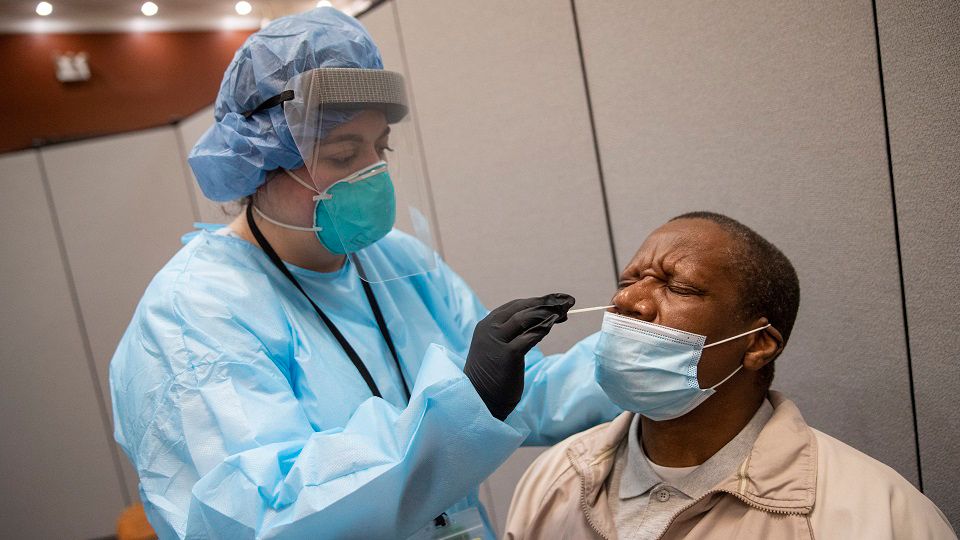Despite the rise in cases linked to the delta variant, 53% of all NYC residents are fully vaccinated. In certain neighborhoods the rates are far lower than the city average, with many New Yorkers holding off from the shot.
What You Need To Know
- 53.1% of all NYC residents are fully vaccinated
- Daily cases have been on a rise in the city since July 5, a first since infection rates began dropping months ago
Health officials say low vaccination rates and the delta variant are to blame
Health officials say low vaccination rates and the delta variant are to blame
“My throat is killing me and it hasn’t been,” said Alaya Shaarawy.
Shaarawy tested positive for COVID-19 Thursday. She's unvaccinated.
“I’ve just been congested, today my throat hurts but I still don’t feel sick,” Shaarawy said.
Daily cases have been on a steady rise in the city since July 5, a first since infection rates began dropping months ago. Health officials say low vaccination rates and the delta variant are to blame.
“My major concern is not getting my family sick because I live at home with both of my parents. I have three younger siblings,” said Shaarawy.
Shaarawy lives on Staten Island in a neighborhood with a higher than average infection rate, but the vaccination rate here is better than central Harlem which has the highest seven-day positivity rate in the city at more than 6.5%.
“I’m not taking no vaccine,” said Tony Lineberger.
Lineberger was born and raised in Harlem and refuses to get the vaccine.
“I feel like I’ve been out here the whole pandemic and I haven’t caught it and have been taking the steps, so I’m not really worried about it that much anymore,” said Lineberger.
Lineberger is part of a group that has the lowest vaccination rate in the city. Just one in every four Black men in the city, ages 18 to 44 has been fully vaccinated.
"This is a pandemic of the unvaccinated,” said CDC Director Dr. Rochelle Walensky.
The CDC director reiterated Friday the importance of getting fully vaccinated to be protected from severe COVID and the circulating delta variant.
Lineberger explained his position.
“When it first came out they didn’t really know, they had two different shots one where you can take one and you're good, one where you take it and have to come back in 30 days so people are nervous, don’t know if you can trust them,” said Lineberger.
“I don’t feel strongly about the vaccine,” said Shaarawy.
Shaarawy said despite public outreach, even after testing positive for the coronavirus, she will not be getting vaccinated anytime soon either.



